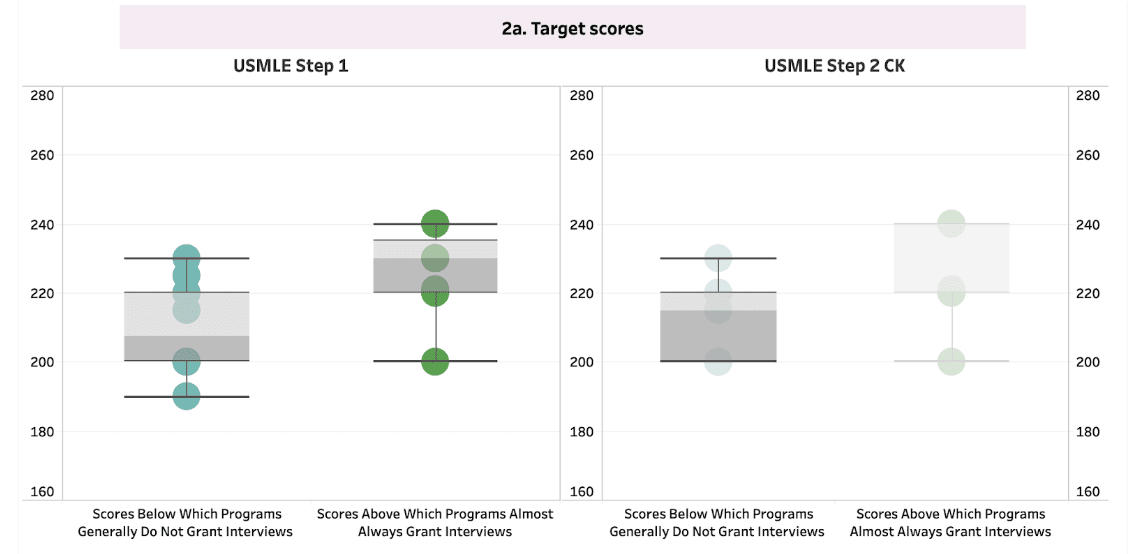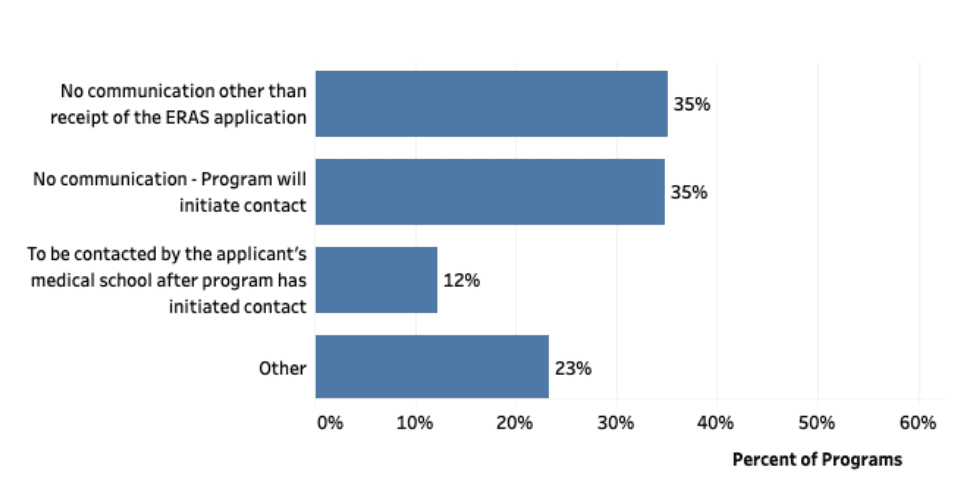How to Match into a Vascular Surgery Residency Program in 2021
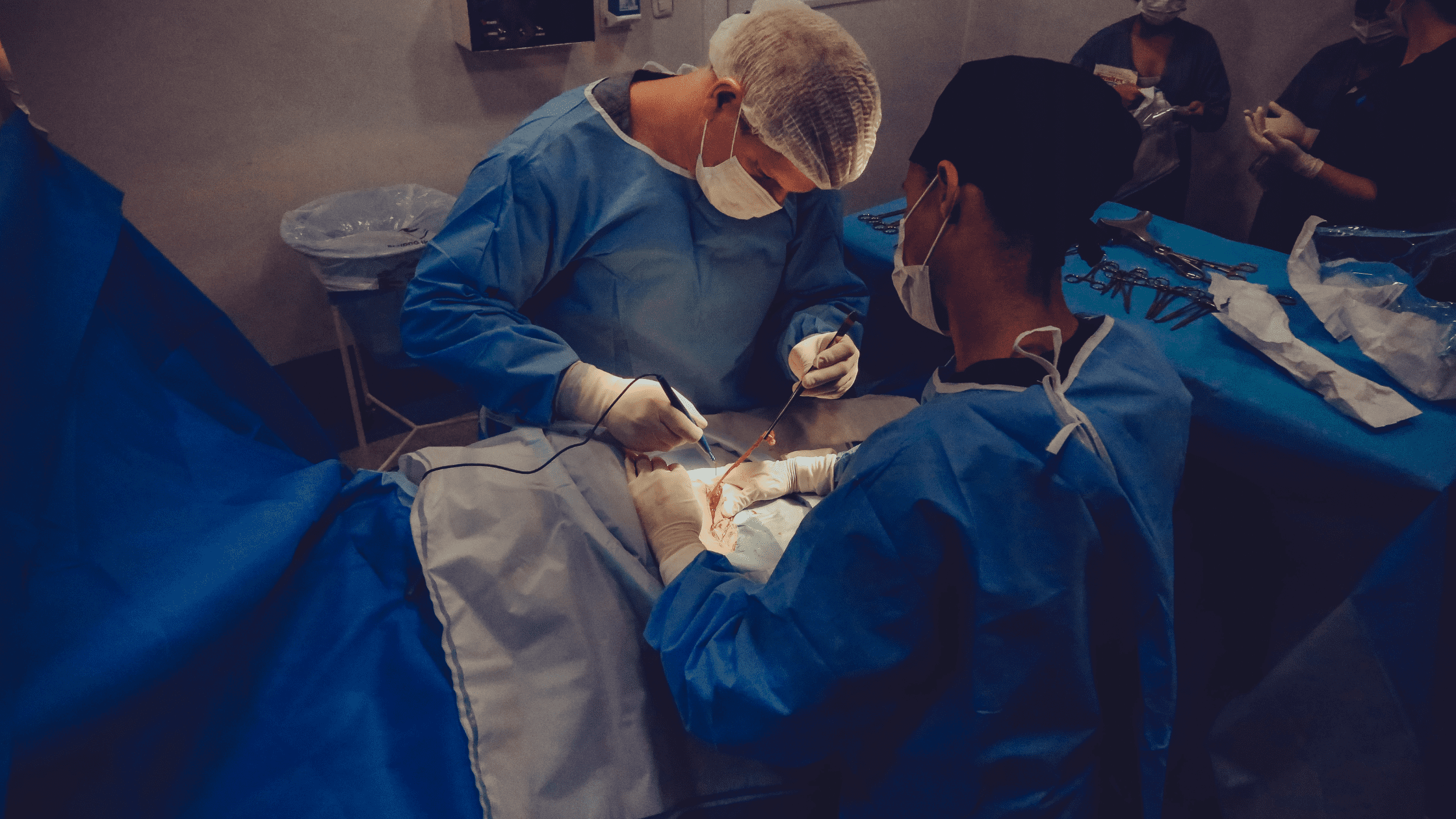
9863 Views
What You Need to Match Vascular Surgery Residency
Let’s talk about Vascular Surgery Residency matching! The NRMP conducted a survey to determine what factors Program Directors consider when deciding which candidates to interview and rank for their residency program. The survey solicited information on:
- the number of applications received, screened, and reviewed, as well as the number of applicants interviewed and ranked
- the frequency with which programs interview and rank specific applicant groups
- use of test scores in considering which applicants to interview
- factors used for both interview selection and for ranking applicants
The results were compiled into a “at a glance” tool, which is extremely helpful in gauging where your application packet stands compared to the applicant pool, and whether adding additional components, like a letter of recommendation (LOR) in the specialty, could give you a leg up as programs review your application.
The interactive tableau tool can be found here, and we recommend taking a look at the specialty you’ll be applying to before submitting your ERAS packet: https://public.tableau.com/profile/national.resident.matching.program#!/vizhome/PDSurvey2020-Final/Desktoptablet. We’ve highlighted the key points for Vascular Surgery below.
*Of note, although this survey was sent to 59 Vascular Surgery program directors, response rates were limited so these results are based on N=10*
For Vascular Surgery Residency, major components of the survey you should pay attention to include:
Selection Criteria for an Interview
- These are the top 10 factors program directors use in selecting applicants to interview. 100% of programs consider a LOR in the specialty, commitment to the specialty, and USMLE Step 1 scores MAJOR factors in 2020. Factors that were also ranked as important include personal knowledge of the applicant, interest in the program, and Step 2 CK score. So, get a Very Strong LOR in the specialty. You may be dead in the water without it!
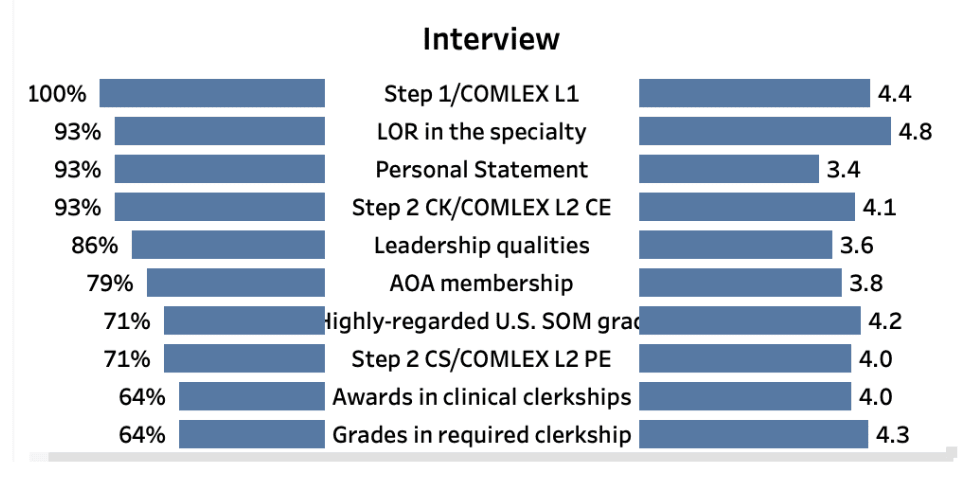
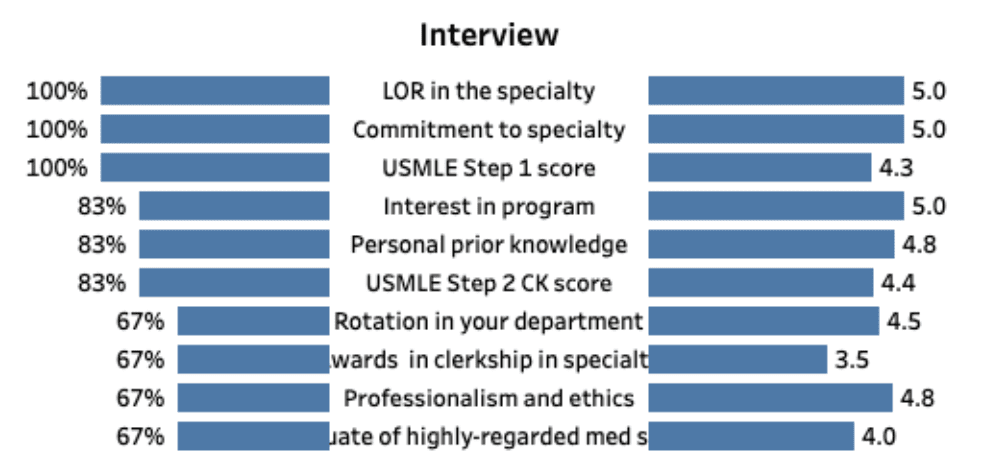
- If you get an interview invitation, you are very likely to end up on the rank list if you interview. We recommend ranking at least 8-10 programs, so once you receive 10 interview invitations, you can feel okay with starting to prioritize and cancel as more come in given you are likely to get ranked.
- Expect to receive interview invitations in October 61% of the interview invitations will be sent out during October, the rest will be sent out during the subsequent months. Expect to hear very little from vascular surgery programs until October.
- Expect to interview in November/December: Only 5% of interviews will occur before November, which gives you ample time to prepare. For further discussion on how to prep for your interview, see our blog post on how to Crush your Residency Interview: https://elitemedicalprep.com/preparing-for-your-residency-interview/
Selection Criteria to be Ranked
- These are the top 10 factors program directors use in selecting applicants to be ranked. 100% consider interactions with faculty and house staff, interpersonal skills, LOR in the specialty, and commitment to the specialty to be major factors. So again, have a very strong LOR, and be aware that interactions on interview day are VERY important! Finally, showing commitment through research can be very important for Vascular Surgery.
Step 1 and Step 2 Scores
-
-
- Step 1 – Score
- 240 is the median score above which programs almost always grant interviews
- 220 is the median score for which programs typically do NOT offer interviews
Step 2CK – Score
- 240 is the median score above which programs almost always grant interviews
- 220 is the median score below which programs generally do NOT grant interviews
COMLEX Level 1 – Score
- Data not available
COMLEX Level 2 – Score
- Data not available
- Step 1 – Score
-
Failing Step 1 is a MAJOR Hurdle
-
- Failing Step 1 is a BIG deal in ANY specialty, and this is especially relevant in vascular surgery. 28% of vascular surgery programs will NOT consider you if you’ve failed Step 1, and 33% will NOT consider you if you’ve failed Step 2. So, if you’ve failed an exam, you can still apply, but you should apply to a large number of programs and also consider a back-up specialty. 57% of programs seldom consider very strong applicants who have failed Step 1 and Step 2, respectively.
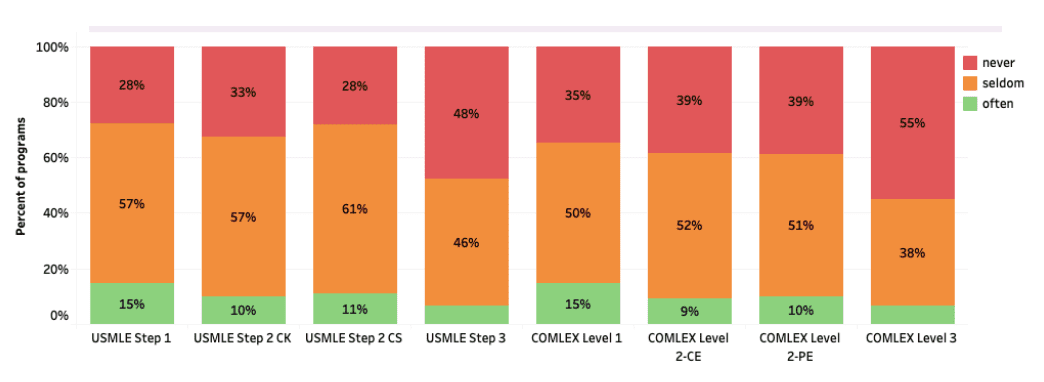
Types of Applicants Considered
- International Grads (U.S. and non-U.S.) CAN be considered, but must be outstanding applicants: Nearly 30% of US IMG and 17% of non-US IMG applicants CAN be considered in Vascular Surgery. Non-US IMGs definitely have an uphill battle given 1/3 of programs will not even consider. We recommend doing your homework to determine which programs may be more likely to consider IMGs, and definitely recommend a back-up specialty to apply into if you’re a Non-US IMG.
- Osteopathic seniors CAN apply into Vascular Surgery: About a quarter of programs often interview DOs, and another quarter never interview DOs. Thus, it is very important to do your research to identify programs with DOs already enrolled, so that you can best increase your chances of matching.
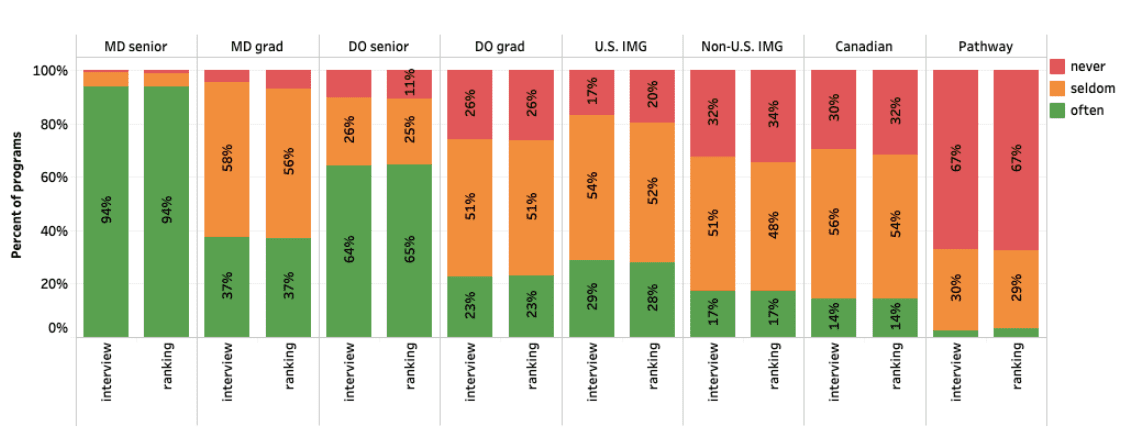
SOAP Communications
- 35% of programs have no communication other than receipt of the ERAS application. 35% prefer no communication from the applicants and will initiate the contact themselves. Thus, 70% of programs want NO contact!
- Only 12% prefer to be contacted by the applicant’s medical school after the program has initiated contact.
- It is reasonable on a VERY SELECT basis to look into the programs that you are applying to and determine if you should pursue additional contact to increase your chances of receiving an interview.
Summary of Applying into a Vascular Surgery Residency Program
- A solid Vascular surgery application would include a 240 on Step 1 and Step 2, a LOR from 1-3 vascular surgeons, and a strong personal statement and research background to document your strong interests in vascular surgery.
- DOs and IMGs with exceptional applications can apply into Vascular Surgery if you do your research to identify programs with active IMG/DO residents and establish proper connections.
- If you’ve failed an exam, you can still apply in Vascular surgery, but you should apply very broadly and apply for a back-up specialty.
- Expect Interviews in November-December. Only reach out to 1 or 2 MAX programs you have VERY high interest in if you haven’t heard from them by mid-November. Most programs (70%) want no contact from applicants. Once you have about 10 interview invitations, you can consider being a bit more selective about which ones you actually take (but not before).
Good Luck! ☺
If you need further or specialized assistance understanding which residency specialties you are best suited to apply to, you can contact us or visit our residency advising page to learn more about how Elite Medical Prep residency advising services.
Featured Articles


